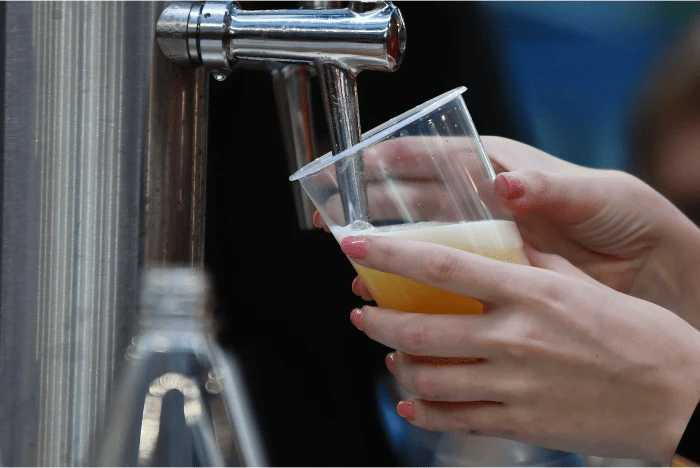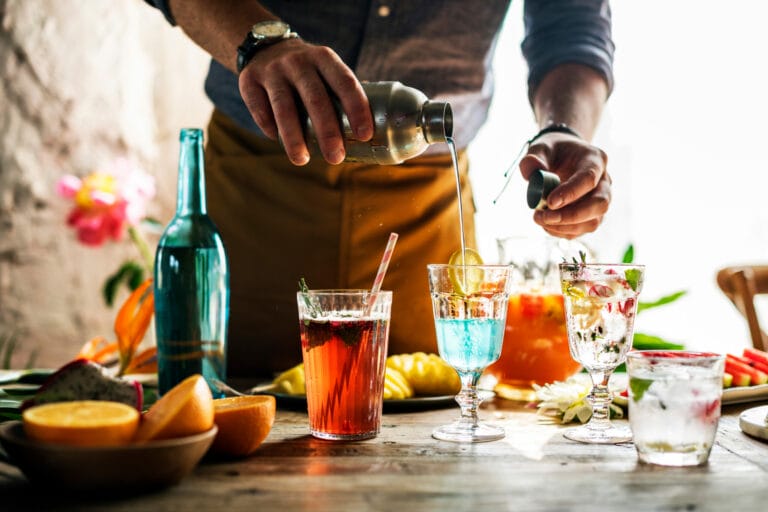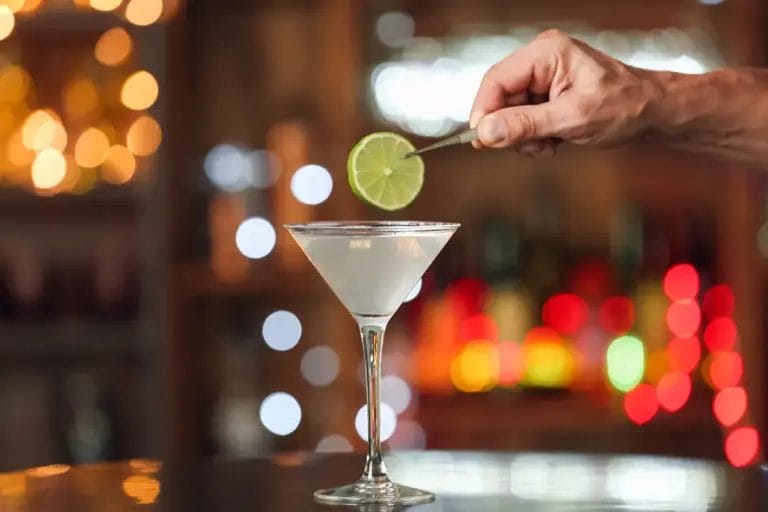Whether you’re a master mixologist or a caterer adding cocktails to the menu, it’s important to understand the ins and outs of serving alcohol.
While a few drinks can get the party going, they can also cause some big problems if you’re not prepared.
Understanding how to operate a safe, responsible business is always important, especially for bartenders, caterers, and food truck vendors.
The things you don’t know can cost you big, which is why we created this handy list of the most common questions you might have about serving alcohol.
Top FAQs About Serving Alcohol
What Licenses Do I Need to Serve Alcohol?
The regulations around serving alcohol vary depending on what state you live in and your role in the business, so it’s important to learn and follow local laws.
In most cases, individuals like servers and bartenders do not need a license to serve liquor, however, business entities, such as caterers and restaurants, do.
Depending on local requirements, you may also need a permit for each event you serve.
How Do I Check for Proper ID?
You must consider several factors when checking a patron’s ID, including authenticity, birthdate confirmation, and physical matching.
Authenticity
- Does it look like an official state identification card based on your experience?
- Is the ID still valid and not expired?
- Are security features like holograms, perforations, embossing, or UV imagery present?
- Is the information consistent and logical?
- Does the card’s barcode scan properly?
Birthdate Confirmation
- Based on the date, does the birthday make the customer at least 21?
- Does the person know their birthdate without looking at the ID?
- Does the customer appear to be the age listed on their identification?
Physical Matching
- Does the customer appear to be the same person as the photo?
- Do they match the height and weight listed on the card?
- Can the customer repeat the information on their ID without looking?
About 95% of fake IDs are borrowed from an older sibling or friend, which is why it’s important to check for physical markers. Fake IDs tend to have telltale signs, including mismatched data, inconsistent barcodes, and squared or ragged edges.
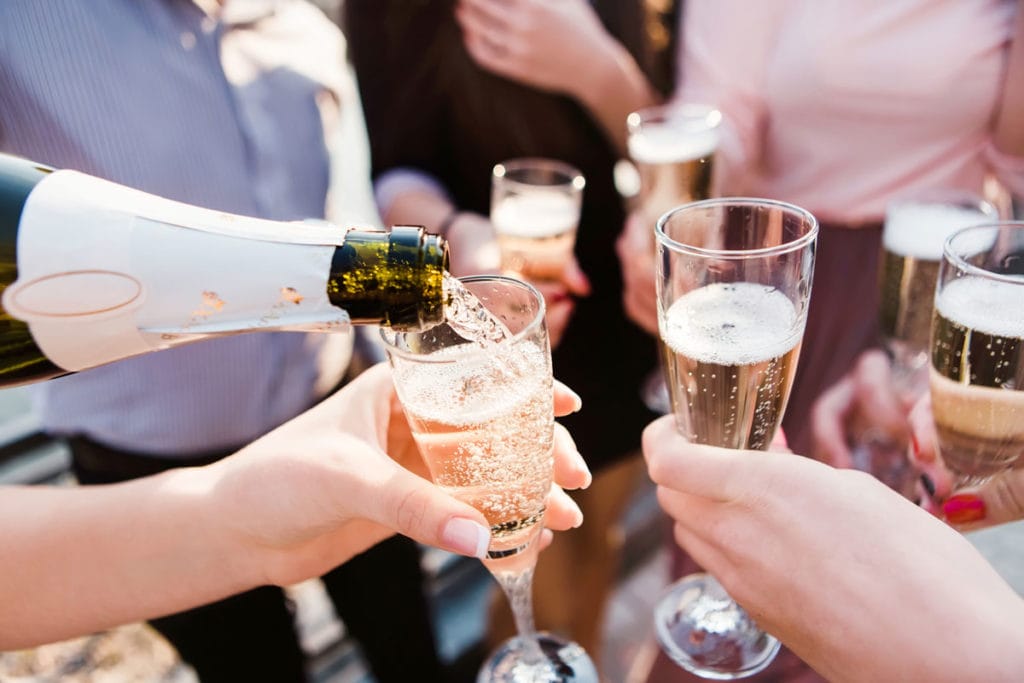
Can I Serve Alcohol at a Private Event Without a License?
That depends! If you operate a catering service that includes alcohol on the menu, your business needs to have the appropriate license for your area.
If you are an individual or organization providing alcohol at an event, host liquor liability requirements can vary. Most states don’t require you to have a license to serve alcohol at private events provided you are not charging and service is limited to guests.
What Are the Penalties for Serving Alcohol to Minors?
The penalty for serving alcohol to a minor can range from hefty fees to jail time.
Though dram shop laws vary across the country, you can be held liable for serving alcohol to a minor in most states. Even if you don’t face prosecution, the underage person who was served and anybody they may have injured could take legal action against you.
How Can I Train My Staff in Responsible Alcohol Service?
While in-house training and adhering to best practices is a good start, all of your staff (including volunteers) should be required to complete a certification course to minimize liability and ensure they can safely serve alcohol on behalf of your business.
There are several trusted certification programs for servers and bartenders:
Some states also offer their own training programs tailored toward local laws and requirements.
What Are the Legal Serving Hours for Alcohol?
Legal serving hours for alcohol vary by state and sometimes even city. The average timeframe for legal service is between 6:00 am and 2:00 am, but it’s important to check local laws to verify before setting up shop.
Many areas prohibit the sale and service of alcoholic beverages on Sundays, while others allow it or require a special permit.
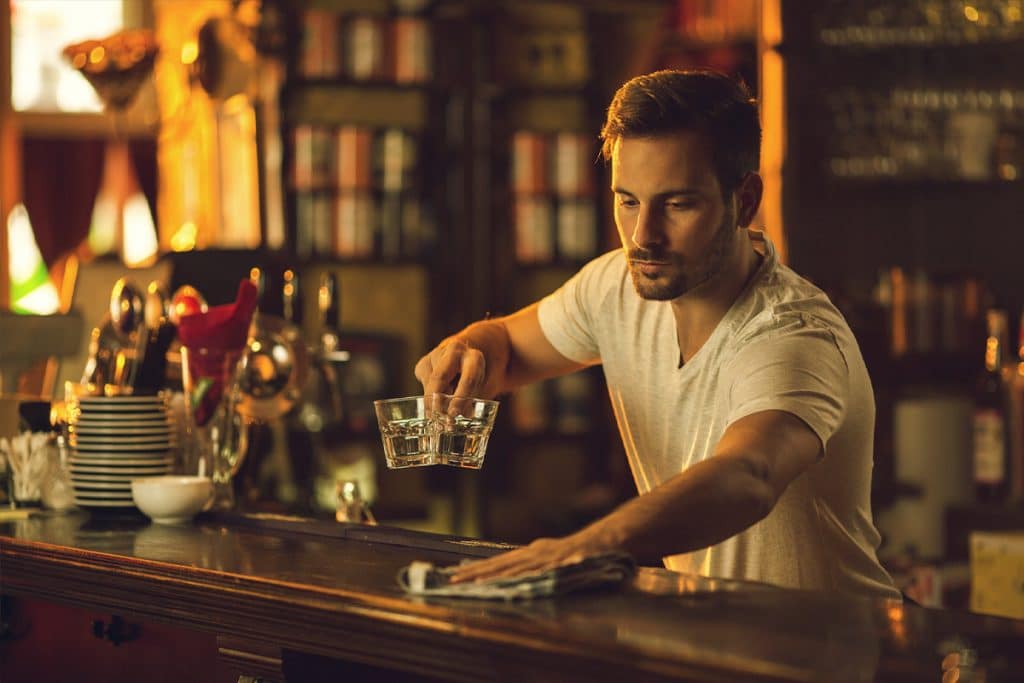
Bartender FAQs
Can I Serve Alcohol Without a License?
You probably do not need a license to serve alcohol as a bartender.
The company that employs you will likely need a liquor license, but individual bartenders and servers don’t usually need one. Make sure to research local laws for mobile bartenders, though, as these can vary.
Your employer may require you to complete certification or training for safe service to help reduce their risk.
Can I Serve Alcohol While Waiting for a Liquor License?
If your employer does not have a liquor license yet and wants to sell alcohol as part of their primary business, you cannot serve or sell alcohol for them.
Some areas may allow you to serve alcohol at private events under local host or social liquor laws.
Can I Serve Alcohol Without a Smart Serve?
You are not legally required to have a Smart Serve certificate in alcohol service; however, many employers will require bartenders and servers to complete some form of training to sell alcohol to customers.
Additionally, most liquor liability insurance policies require you to complete a certification program to have coverage.
Can I Refuse to Serve a Customer Alcohol?
Yes! In fact, under certain circumstances, bartenders are encouraged to refuse service.
It is illegal to serve a minor at any time or a patron who is visibly intoxicated, so these customers should always be declined. You can also deny service if a customer is belligerent or rude to staff.
The only time you cannot refuse service is if it’s due to discrimination based on things like race, religion, or other protected groups.
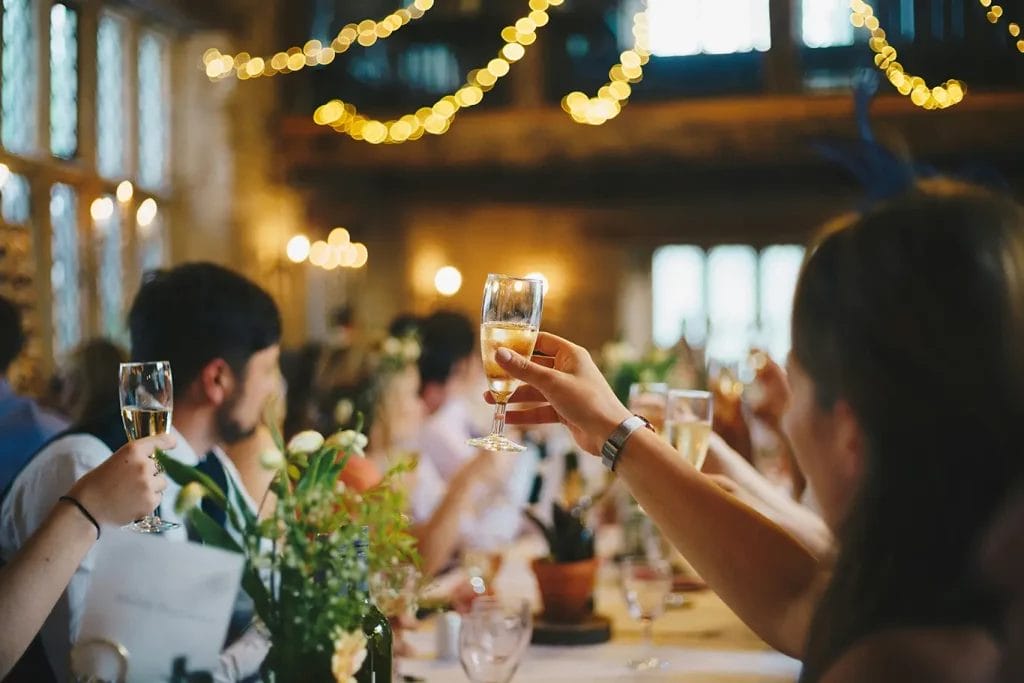
Caterer FAQs
Can I Serve Alcohol as a Caterer?
You can serve alcohol as a caterer, you just need to meet your local government’s licensing requirements.
These can vary depending on where you operate, so it’s important to research local laws and regulations. You should also have trained and certified bartenders on staff to ensure safe service.
Can I Serve Alcohol With a Catering License?
Yes! Some states might require you to get a temporary liquor permit through your local government agency.
Laws can vary depending on where you live, so make sure to research before you throw a party. It’s always smart to follow the best practices for safely serving liquor as a responsible event coordinator.
Can I Serve Alcohol at My Business?
It depends. Some states prohibit serving alcohol at a business, even if it’s free, while others have no restrictions.
Check your local business and liquor laws before offering a complimentary glass of champagne to clients.
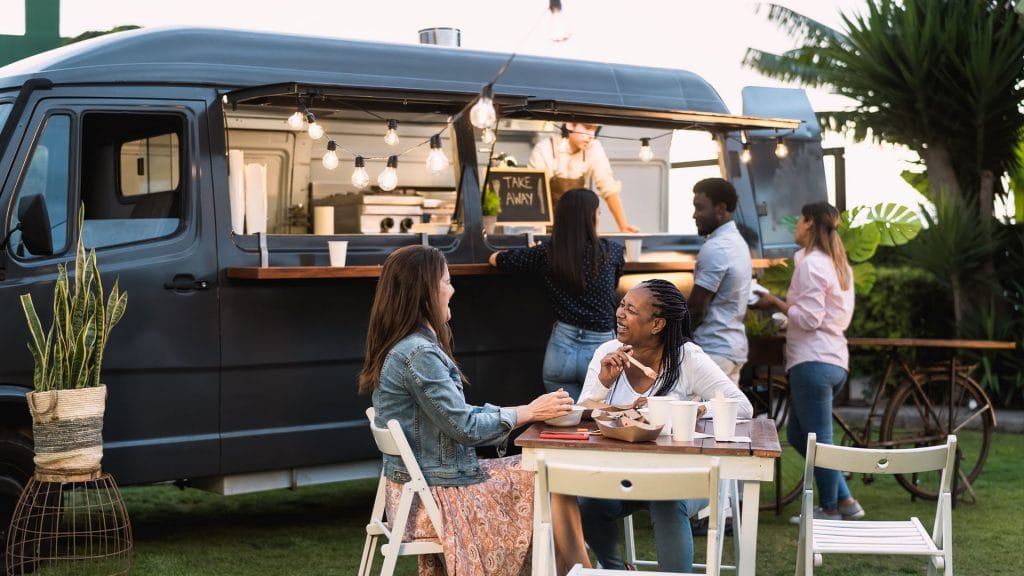
Food Truck FAQs
Can I Serve Alcohol on a Food Truck?
Many states allow food truck vendors to serve alcohol, though you may be subject to restrictions for where, when, and what you can serve.
As always, make sure to research your local laws and regulations before adding alcohol to your menu.
How Do I Sell Alcohol From a Food Truck?
If your state allows the sale of alcohol through your food truck, you’ll need the appropriate liquor license along with your other mobile food vendor licenses and permits.
Liquor sales may be limited to certain locations and types of drinks, and laws vary by state and city.
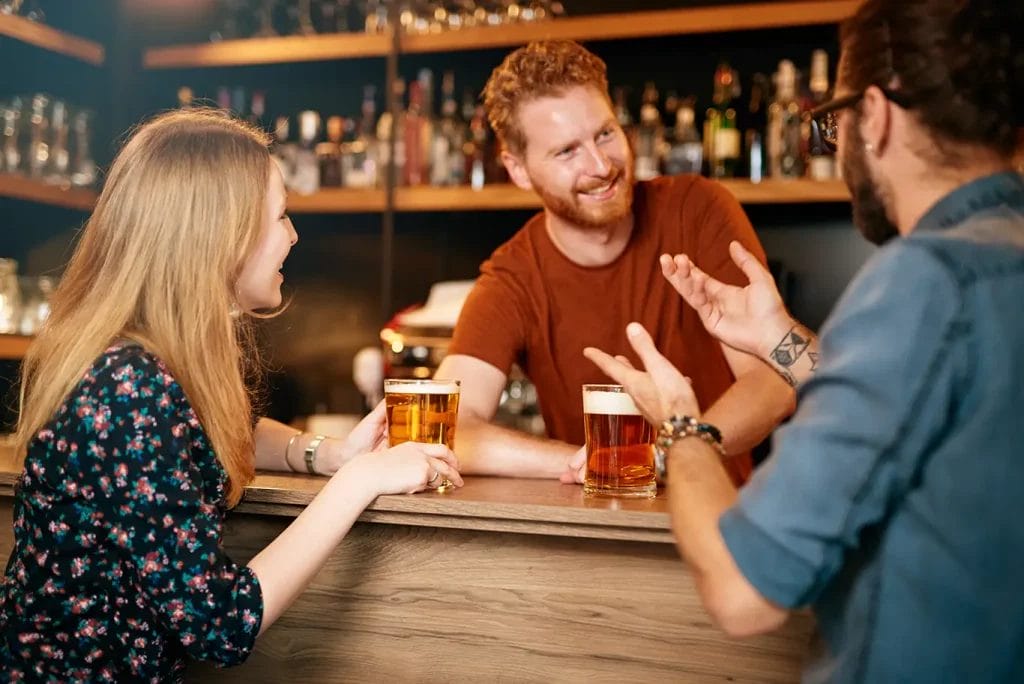
Our Top 10 Tips for Serving Alcohol
Serving alcohol can be fun, but it also comes with a lot of responsibility. Here are 10 tips to help you serve safely:
- Get Certified: Even if your employer or the law doesn’t require it, alcohol service certification can give you useful tools and information for serving responsibly, recognizing when to cut off a customer, and getting ahead of problems before they can begin.
- Learn Local Laws and Regulations: Because laws vary so widely between states, cities, and counties, it’s important that you’re familiar with the local regulations and requirements before you serve alcohol, especially if your business travels.
- Check Identification Diligently: You can avoid big problems by consistently and attentively checking IDs before serving customers. Accidentally providing alcohol to a minor can result in huge legal fees and liability claims.
- Pour Responsibly: A generous pour may sound appealing to your patrons, but it can lead to overservice and overly intoxicated customers. Learning how to measure liquor and understanding the alcohol content in wines and beers can save you a headache later on.
- Monitor Consumption: Keep an eye on your customers, particularly those who make multiple trips to the bar. If a patron orders multiple drinks per hour, you may need to cut them off. Most people can metabolize one drink per hour without becoming intoxicated.
- Never Serve an Intoxicated Guest: If you serve an intoxicated customer, you could be held liable for any injuries or damage they cause while drunk. You have the right and duty to deny service if a patron seems to be intoxicated.
- Offer Snacks and Non-Alcoholic Drinks: Offer water, soda, and other non-alcoholic beverages so that customers can balance their alcohol intake with hydration. Complimentary snacks and hors d’oeuvres can help slow down the absorption of alcohol, too.
- Arrange Safe Transportation: When possible, confirm that your customers have a designated driver or a safe ride option, like Uber or Lyft. If a customer is overserved and gets behind the wheel, you could be held responsible.
- Stay Alert: It’s easy to get caught in the weeds on a busy night, but try to keep an eye on the room and your customers. If you notice somebody becoming belligerent or behaving poorly, you may be able to step in before issues arise.
- Get Liquor Liability Insurance: No matter how careful and well-trained you are, accidents still happen. If you serve or sell alcohol, you need liquor liability insurance to protect yourself and your business from expensive claims.
Serve Safely With Insurance
Doing the legwork to get your business going is a labor of love, so protecting it should be a priority. Insurance Canopy offers liquor liability coverage that safeguards your business from common claims that can cut deep into your profits.
If you’re wondering what liquor liability insurance is and if you need it, consider the following scenarios:
- You accidentally serve an underage wedding guest. He causes a car accident while driving home drunk. Now you’re being sued for his medical bills and property damage.
- Two bar patrons get into a fistfight, breaking tables and landing both of them in the emergency room. Both women claim that you overserved them and demand compensation.
- An intoxicated party guest leaves the event you’re bartending and backs into the venue, causing extreme property damage. Now the venue owner expects you to pay for repairs.
In each of these cases, Insurance Canopy’s liquor liability coverage could mitigate or eliminate your financial responsibility.
You’ve done the work of familiarizing yourself with local laws, getting your required licenses, and learning safe service protocols. Don’t let your guard down now! Make sure your business has the protection it deserves with liquor liability insurance from Insurance Canopy.

